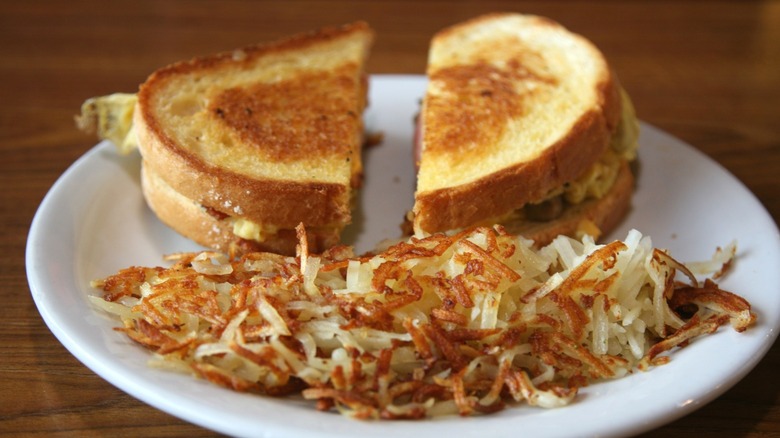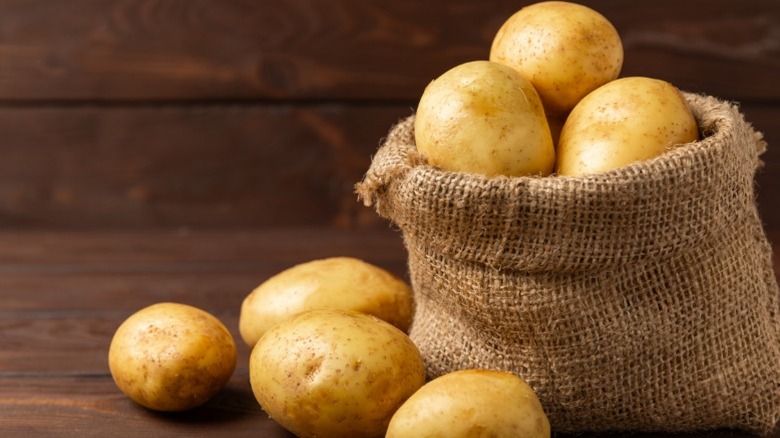The One Step You Can't Miss When Making Hash Browns
Whether they're a loose mass of shredded potatoes with onions and bell peppers or formed into McDonald's-style potato patties, nothing hits like a good hash brown. They're a salty, crunchy, savory source of starch for your morning, and it goes without saying that they're perfect for cutting through a hangover. (If you get them at a diner, even better; if you get them at the Anthony Bourdain-approved Waffle House, you've just hit the jackpot.) But what if you want to make them yourself? What if you've got a few potatoes you want to put to use, or a cast iron skillet just begging to cook a tasty breakfast? If that's the case, you'll want to rinse and squeeze out every bit of starch in those potatoes.
First, you'll have to shred the potatoes. (That's right, shred them — these are hash browns, not the breakfast potatoes lamer diners try to pass off as hash browns.) Once you've done that, you're going to rinse them in water, which will get rid of a lot of the excess starch. Starch is the enemy of crispy, crunchy hash browns: it makes your potatoes soggy, gummy, and clumpy. Once the potato shreds have been rinsed, you'll have to squeeze them, ideally through cheesecloth, as water is also the enemy of crispy, crunchy hash browns.
Alternatively, you can pre-cook your potatoes
If all this sounds like a bit of a pain, you may be right. Some people like a nice project in the kitchen, but there is a time and a place for a project, and very rarely is it first thing in the morning. If you want to make things easy on yourself, you can get rid of the starch another way: by parboiling your potatoes ahead of time, ideally the night before you want to make your hash browns. By cooking a potato — parboiling it, baking it, blanching it, what have you — you reduce the water content, making it much crispier.
The key is to boil your potato of choice (probably Yukon Gold, as they're the crunchiest) until they're fork-tender, meaning you can easily pierce them with a fork without experiencing any resistance. If you're in a hurry, you can wait for them to cool and grate them then and there; if you're making it ahead of time, however, you can put them in the fridge and store them for a few days. This is the sort of attention to detail that separates the great diners from the merely okay ones, and if you do it right, yours will be just as good as the hash browns you'll get in a restaurant.

